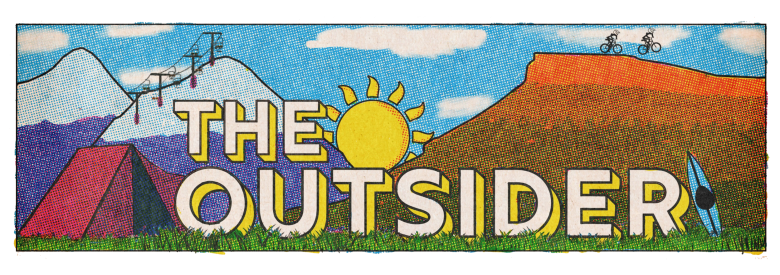Sneak Peek of the Week
Steamboat Springs paddleboard pioneer sells Hala, Colorado Kayak Supply to longtime friends
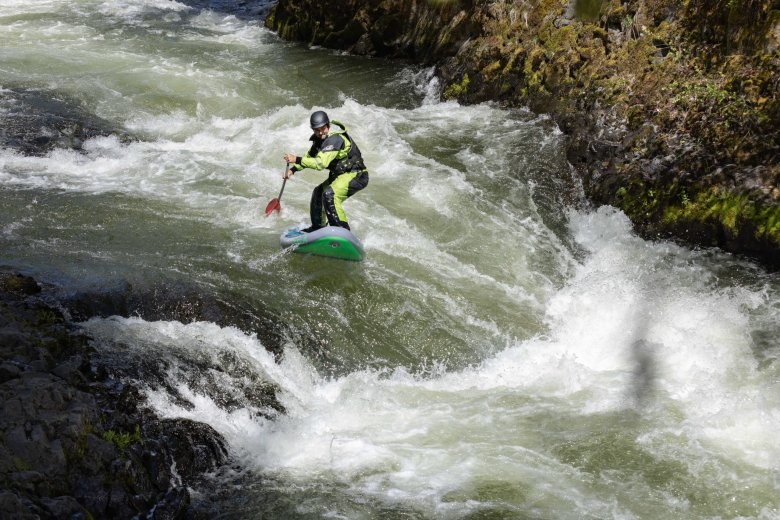
Steamboat entrepreneur Peter Hall was among the first to design an inflatable paddleboard specifically made for navigating whitewater.
With a $30,000 initial investment in 2011, Hall’s Hala boards — with catchy names like the Hala Atcha, Hala Peno and the Hala Nass — helped create a new way to play in rivers and creeks.
“We set people up with a board that could tackle all kinds of whitewater. We were doing R&D and designing stuff for a cohort of paddlers that didn’t exist back then but we helped bring the sport to life,” said 41-year-old Hall.
The pandemic broke Hall. Shops canceled orders in the summer of 2020 but then doubled up heading into the next year as outdoor recreation soared. He tried to recover using a loan from the Small Business Administration, but then the federal government’s interest rate hikes added $135,000 in debt service to Hall’s bottom line. And then shops with overflowing shelves started canceling orders as the post-pandemic boom in outdoor recreation ebbed.
“Consumer behavior before, during and after the pandemic caused businesses to need to move faster than was possible and that friction is expensive,” Hall said. “Now there are prices being driven down by the oversupply of paddleboards and all these pool-toy paddleboards that sell for $199 and people are selling them for less than cost just to stop paying for storage. The bottom has just been swiped out of the whole paddlesports market.”
And Hall has filed for bankruptcy protection. He helped his creditors sell Hala Gear to a longtime employee, Colleen King. Colorado Kayak Supply — an online paddlesports retailer founded in Buena Vista that Hall acquired in 2019 from a seller who was struggling — sold to Jon Kahn, the longtime owner of Denver’s Confluence Kayak and Ski shop.
“Oh yes, I’m keenly aware that the previous owners have not been able to figure it out,” said Kahn, who opened Confluence Kayak in 1995 on Platte Street “when there were five, six other paddle shops in Denver and Boulder. Now there’s just two of us.”
Kahn hopes operating Colorado Kayak Supply — it’s often called CKS, which conveniently matches the initials of Kahn’s shop — in Denver with his existing warehouse space will help the company. The previous operators rented storage space in the Upper Arkansas River Valley and Steamboat Springs. And Kahn has a vibrant winter business that will help him weather the seasonal flow of paddlesports.
>> Click over to The Sun on Monday to read this story
Welcome to The Outsider, the outdoors and mountain newsletter from The Colorado Sun. Keep reading for more exclusive news on the industry from the inside out.
If you’re reading this newsletter but not signed up for it, here’s how to get it sent directly to your inbox.
Send feedback and tips to jason@coloradosun.com.

The Outsider now has a podcast! Veteran reporter Jason Blevins covers the industry from the inside out, plus indulges in the fun side of being outdoors in our beautiful state.
Subscribe on Apple Podcasts, Spotify or wherever you listen to podcasts.
The Playground
Spot sues Gates over millions in unpaid royalties for bike frame invention that fits belts, not chains
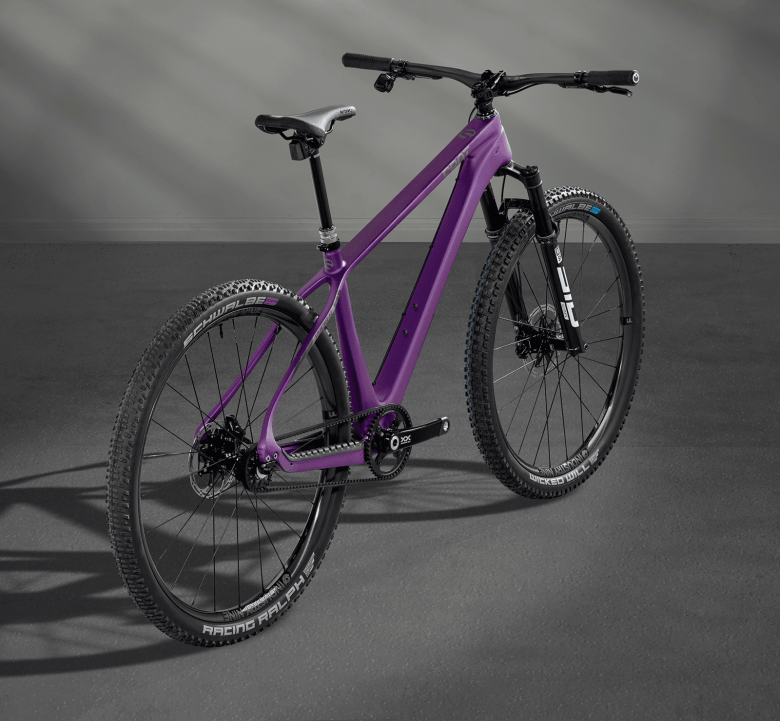
135
Number of bike brands with models that use the Gates belt drive instead of a chain
When Denver’s Gates Corp. in 2008 debuted a belt-drive system to replace century-old chains on bikes, the company promised a “game changer” for the cycling industry.
But the chainless revolution — which the company helped launch for motorcycles in the 1980s — needed big help from bike-makers. While traditional bike chains can easily separate to slide into a bike frame, the belt-drive system needed a frame that could separate to accommodate the carbon belt.
One of the first bike companies to step up with a new frame to accommodate the Gates belts was the family-owned Spot Brand in Golden. The company designed a frame with what it called “Drop-Out” technology that fit the Gates “Carbon Drive” belt system.
In 2008, Spot Brands and Gates Corp. inked a licensing and royalty agreement that gave half of the Drop-Out invention to Gates so it could license the technology to other bike-makers. Gates said it would protect the patent on the design and pay Spot 8% of its net sales of any products sold by bike-makers who licensed the Drop-Out design.
A couple weeks ago Spot sued Gates Corp., saying the Denver-based company has not paid any royalties while the company has expanded its belt technology into more than 1,000 bike models. The lawsuit says Spot is owed “millions of dollars in unpaid royalties.”
“Gates’s benefit was achieved at Spot’s expense because Gates deprived Spot of the economic benefits of the Drop-Out while keeping for Gates alone the economic benefits of the growth of the belt-drive bicycle market,” reads the lawsuit filed in Denver District Court, which claims Gates owes Spot millions in unpaid royalties.
By 2011, Gates had 54 bike brands using the belt drive on 92 models and the company said the number of Gates belt-driven bikes was growing by 50% a year. The Gates Carbon Drive is now available on 135 brands of bikes offering 1,000 models. The belt-drive system has proven very popular among e-bike brands.
>> Click over to The Sun on Friday to read this story
The Guide
Colorado gets $5.8 million from the Land and Water Conservation Fund
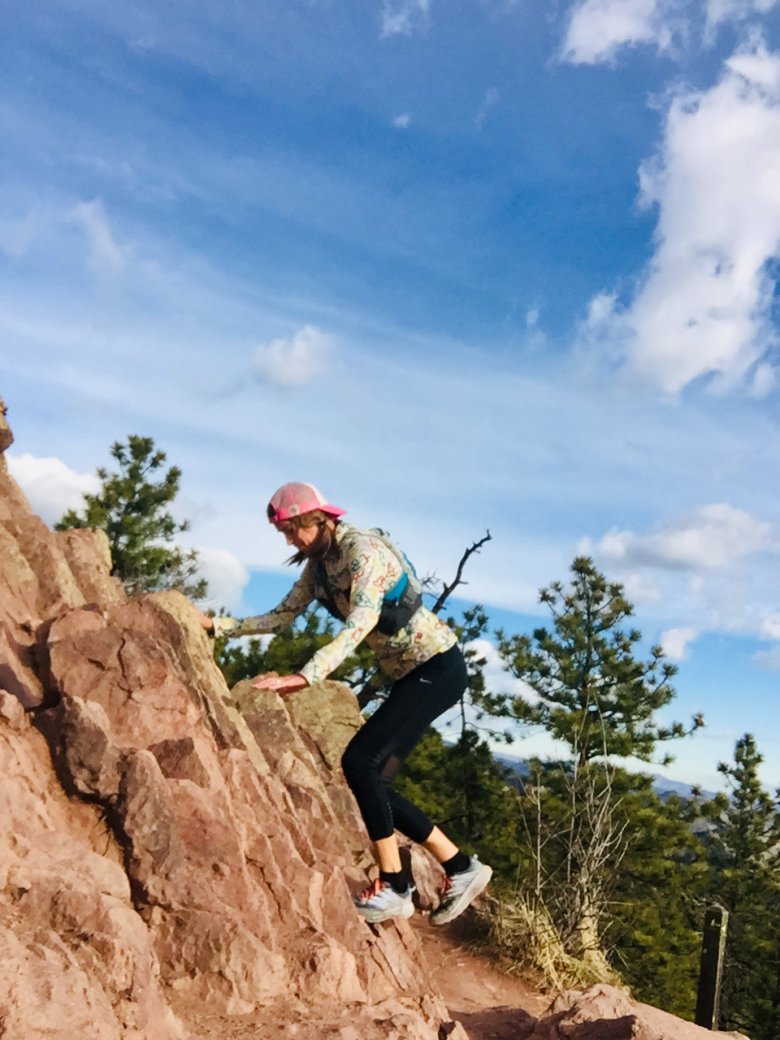
$5.8 million
Land and Water Conservation Fund distribution to Colorado as part of the fund’s largest ever distribution to states
The Land and Water Conservation Fund last week delivered $325 million to all 50 states, the largest distribution from the fund’s state program since 1979.
Colorado got $5.8 million that will be distributed in the next grant cycle by Colorado Parks and Wildlife.
Last year, Colorado received five grants from the Land and Water Conservation Fund for $5.5 million for parks, trails, recreation programs and open space in Boulder, Erie, Idaho Springs, Jefferson County and Rifle. Colorado Parks and Wildlife submitted 11 grant applications for projects seeking a total of $10.3 million in LWCF funding.
Applications from Colorado communities seeking a portion of the $5.8 million in LWCF Colorado funds are due in October and will be announced next spring. Local, county, state and tribal governments can apply for $100,000 to $1.25 million in grants for recreation projects on government-owned land.
Since 1965, the LWCF’s state program has distributed $86 million for 976 projects in Colorado. Combined with distributions through the Bureau of Land Management, the Forest Service, the National Park Service and U.S. Fish and Wildlife Service, the LWCF has sent $357.1 million to 1,691 projects in Colorado since 1966.
The fund gets $900 million a year from royalties paid by companies drilling off-shore for oil and gas in U.S. managed waters. Last year, the Land and Water Conservation Fund delivered $3.4 million for the Pike and San Isabel National Forests to support the acquisition of 289 acres atop the 14er Mount Democrat. In 2021, the fund delivered $8.5 million to the White River National Forest for the acquisition of Sweetwater Lake.
“The Lost Mountaineers” documentary — screening in Vail, Leadville and Denver this week — details the 10th Mountain Division finals days of WWII
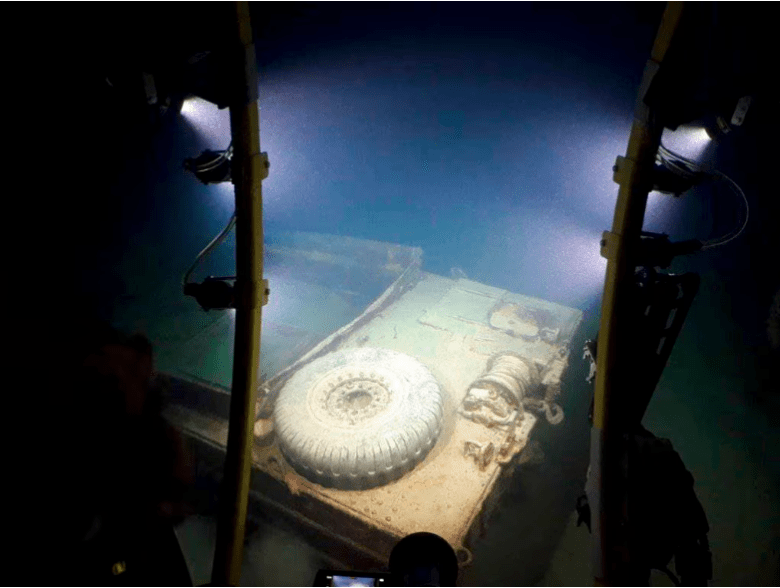
At the bottom of Italy’s deepest lake lies a mystery. The amphibious vehicle that carried 25 10th Mountain Division soldiers in the final days of WWII sits upright on the bottom of Lake Garda. All but one of the soldiers are listed as missing in action. Their remains were not found after their amphibious vehicle sank in the alpine lake on the night of April 30, 1945.
Volunteer divers found the wreckage in 2012. A submarine searched the lake bottom in 2013 and found no evidence of the 24 men who drowned that night. (There was a sole survivor, who worked as a lifeguard before joining the 10th Mountain.) German forces surrendered a week later and the deaths of the 24 10th Mountain soldiers — some of the war’s last casualties — were eclipsed by the Allied forces victory.
An Italian nonprofit in 2023 made a documentary — “The Lost Mountaineers” — about the deaths of the 10th Mountain Division soldiers, chronicling the division’s role in the final chapter of the war as well as recent recovery efforts. “The Lost Mountaineers” is screening Aug. 14 at the Colorado Snowsports Museum in Vail, on Aug. 16 at The Old Church in Leadville and Aug.19 at the History Colorado Center in Denver. A Q&A session with the documentary’s production team will follow all three screenings.
— j

The Colorado Sun is part of The Trust Project. Read our policies.
Corrections & Clarifications
Notice something wrong? The Colorado Sun has an ethical responsibility to fix all factual errors. Request a correction by emailing corrections@coloradosun.com.

